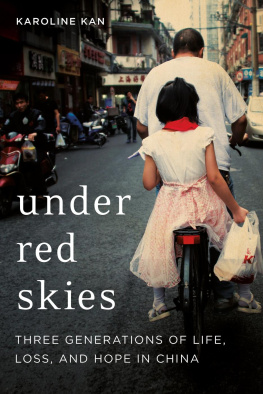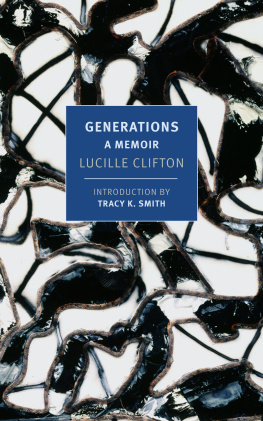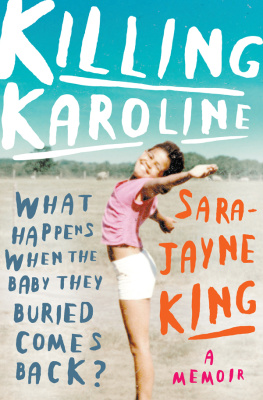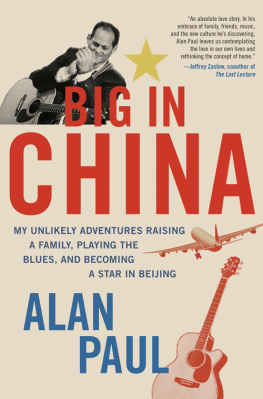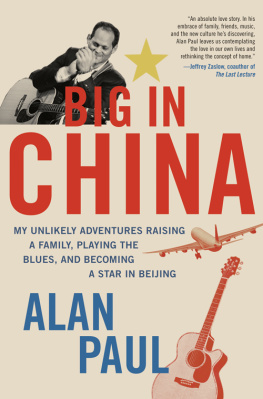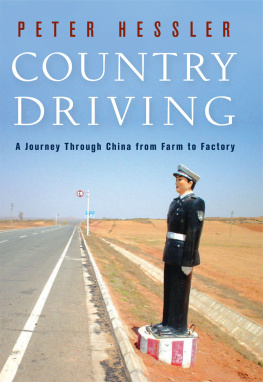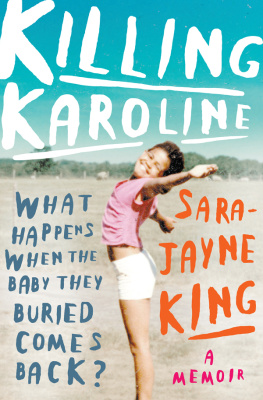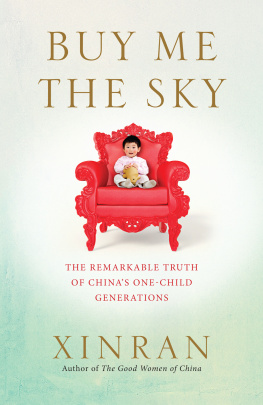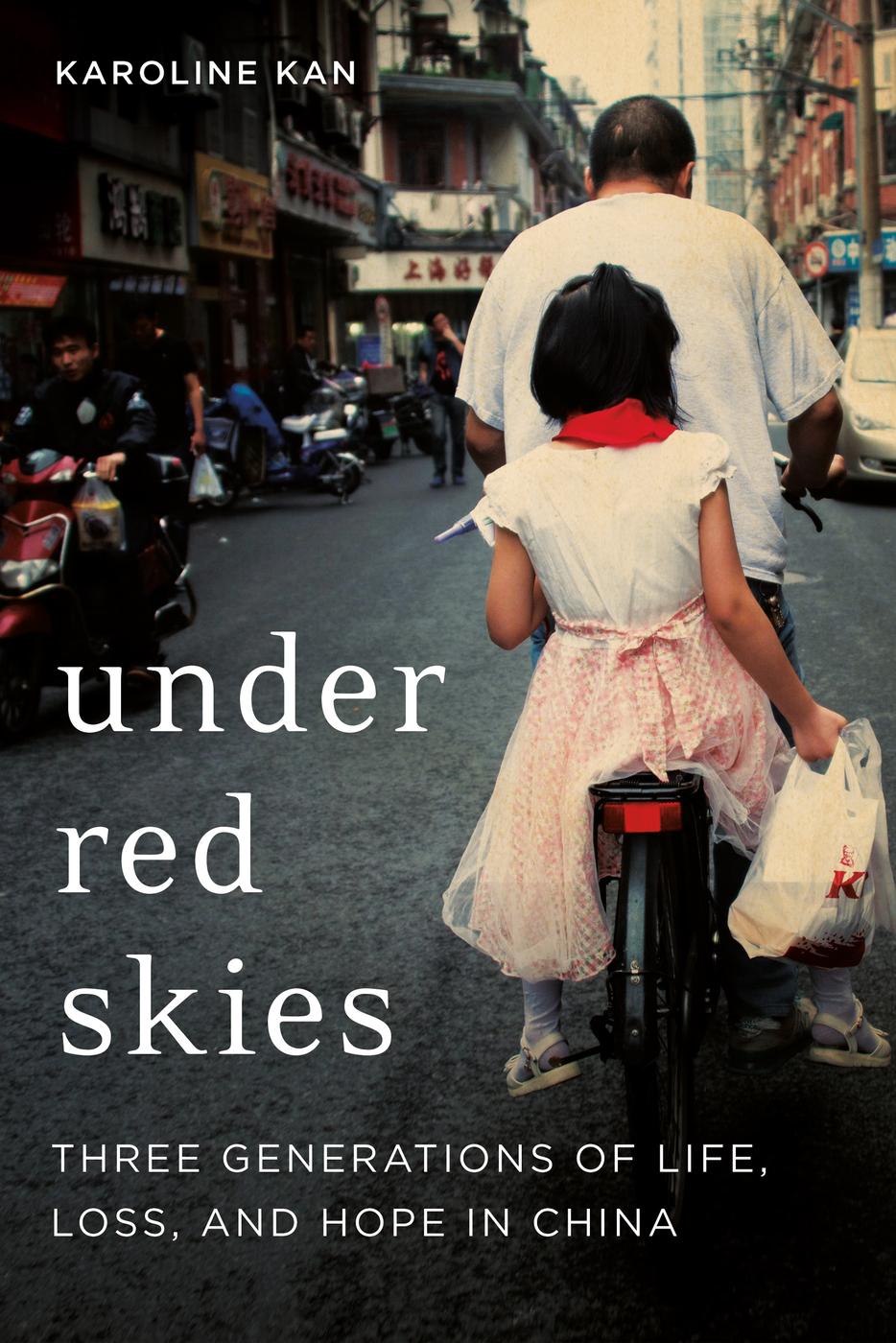
Authors Note: This memoir has been pieced together with the help of diary entries, photographs, interviews with family members, and other research. Most names and identifying characteristics have been changed to protect them from recognition. Time has been compressed. Dialogue has been approximated, and in some cases, compositely arranged. Great care has been taken to tell my truths. This is my story and how I remember it.
Copyright 2019 by Karoline Kan
Cover design by Carlos Esparza
Cover photo by JOHANNES EISELE/AFP/Getty Images
Cover copyright 2019 by Hachette Book Group, Inc.
Hachette Book Group supports the right to free expression and the value of copyright. The purpose of copyright is to encourage writers and artists to produce the creative works that enrich our culture.
The scanning, uploading, and distribution of this book without permission is a theft of the authors intellectual property. If you would like permission to use material from the book (other than for review purposes), please contact permissions@hbgusa.com. Thank you for your support of the authors rights.
Hachette Books
Hachette Book Group
1290 Avenue of the Americas
New York, NY 10104
hachettebookgroup.com
twitter.com/hachettebooks
First Edition: March 2019
Hachette Books is a division of Hachette Book Group, Inc.
The Hachette Books name and logo are trademarks of Hachette Book Group, Inc.
The publisher is not responsible for websites (or their content) that are not owned by the publisher.
The Hachette Speakers Bureau provides a wide range of authors for speaking events. To find out more, go to www.hachettespeakersbureau.com or call (866) 376-6591.
Library of Congress Cataloging-in-Publication Data has been applied for.
ISBNs: 978-0-316-41204-9 (hardcover), 978-0-316-41203-2 (ebook)
To my family
My parents always used to say I was a strange child. In the 1990s and early 2000s, when I was growing up, my favorite thing to do after school was to follow the adults around like a little tail and listen to them tell stories. They called me genpichong, or bum beetle, because I stuck to them like glue.
No matter whether they were talking to me or to each otherwhether it was my grandmother, mother, aunt, or the neighbors wifeI would always sit silently beside them, prick up my ears, and let my mind roam through the enchanting world of their stories. These women had little formal education, but the way they spoke was colorful and warm and delicately captured the moment. They talked in my grandmothers dim kitchen, under a willow tree in our yard, or in my neighbors cabbage garden, their hands constantly occupied with never-ending chores like sewing patches, making soup, or clearing the table.
Some of the stories were mysterious, as though from a book of fairy tales. Weasels danced and imitated humans by singing in the village temple. River ghosts enticed villagers to jump to their deaths in the stream. Broom spirits held lanterns to light the way for people walking in the dead of night. The older women used spirits and ghosts to explain things they could not understand.
Then there were the real stories, which were just as fascinating.
My great-grandfather confessed to so-called crimes he had committed during the Cultural Revolution, such as reading and owning books written by Confucius or listening to the Peking opera, which during that time was disparaged as elitist and against the Communists spirit of revolution, which sought to fight against the old way of feudalism and bourgeoisie.
My grandfather used his hat to hide the rice hed stolen from the public kitchens to prevent his children from starving to death during the Great Famine.
My uncles had destroyed peoples homes and tombs as Red Guards under Chairman Mao Zedongs regime. I heard stories of how a relative had fled to Taiwan after the civil war but could not return home for over half a century, and how political shifts had prevented my father from attending college, which became his lifes biggest regret.
These were the firstand besthistory lessons I ever had. And from these oral histories, I understand how my story is connected to Chinas.
In Chinas history, Ive learned how ordinary lives can be upended by the political affairs of a nation. I learned how small changes could together alter the entire course of a countrys future.
My dream became to write about the people I knew and loved and to tell their stories, as well as to write my own, free from government censorship and the Communist Partys narrative. I believe these stories deserve to be told, and I consider myself fortunate to have a platform to do so; many Chinese people never have a chance to make their voices heard.
For years, I buried my plan deeply in my chest. Almost all the memoirs I read in Chinese were about famous people. Nobody in my life had ever written a booklet alone a book in English. When I tried to sit my family members down for formal interviews, they would shrug me off. There is nothing to say, they protested. Everybody has this kind of story. They did not want to revisit the past; the right attitude was to focus on the future. They were afraid of saying the wrong thing or something that would get them in trouble, thanks partly to decades of censorship.
So instead of going to them as a journalist, I listened to them as a daughter, a granddaughter, a niece, and a friend. We lived together, and their stories appeared in day-to-day gossip and arguments, the routines of daily family living. I had to be patient, and let the stories flow to me on their own, while still asking questions until I came to understand the truth.
The stories piled up in my diary, notes without a clear purpose. Then, before I realized it, they became a part of me. Now, years later, I can still see, smell, hear, and feel the days and nights when I learned and lived these stories: the light fragrance of the flowers of the Chinese scholar tree on spring afternoons, the orange light in my grandparents bedroom, the crying cicadas and frogs on summer nights. I wrote in my composition classes, at home, and at work. I pitched personal essays to foreign newspapers and magazines like the New York Times and kept searching for the right home for the stories stored up inside me.
This book means more to me than just sharing stories about my family and myself, and what it means to be a Chinese millennial. Tens of millions of stories like ours make up the present-day complexity of what is China. Through these stories, I hope readers from all around the world can snatch a glimpse of how we came to beof what our families went through to shape China into the country it is today.
As a Chinese millennial, I want to show the humanity behind the cold economic figures and classifiers associated with China, to reveal the emotions, choices, and compromises, the courage, love, and hope we share with people around the world. Like our counterparts everywhere, we defy single-word descriptions.
China has areas of rapid development but also miles of backwater. It is not only a global power but also a place where many still suffer from crippling poverty. Its technological advances make international headlines daily, but its rural schools still lack qualified teachers; and though were pledged to the Communist Party, Chinese people live for the next Hollywood blockbuster, just like everybody else. To understand China and Chinese people, you have to imagine yourself there, to think what you might do in the circumstances experienced by families in this book, to have lived through certain politics and cultural traditions shown here. It is easier to blame China than to understand it; it is easier to judge Chinese people than to get to know them. But I believe the rewards for striving to do so are greatas are the risks for failing to try.

